One day, during the garage sale at Vivekananda Retreat, Ridgely I found the book that is a constant inspiration to me: the“Shrimad Bhagavad Gita” translated by Swami Swarupananda which I will quote heavily below. I had read the Bhagavad Gita before, few different “interpretations”, but this one, almost word for word translation spoke to my soul.
Having asked the big “WHY??” of my being here, now, on this earth for many years, I was very fortunate to come to Ridgely and get introduced to such truth and to discover the teachings of Swami Vivekananda.
The “impulses of passion”, the onslaught of thoughts troubling our mind due to Karma and the habits we formed, what is termed our “lower nature” is very strong and in being unconscious of this we make ourselves miserable. Unaware that we need to work to overrule all the attachments and aversions of our senses, we go like sleepwalkers through life. The Gita teaches that:
He who here … living in sin , and satisfied in the senses… he lives in vain.(III 16)
This was how I was feeling, so why was it that way? Again, the Gita has the answer I was looking for:
The turbulent senses… do violently snatch away the mind of even a wise man… (II 60)
So what could I do, far from being wise or anywhere close? There again, I learned the answer from the Gita:
Knowledge is covered by… the unappeasable fire of desire (III 39)
And:
In tranquility, all sorrow is destroyed. (II 65)
Easy for you to say was my first thought. But with the supporting community of Vivekananda Retreat, I realized that we are all dealing with the same problems mankind has for centuries. In the Gita, Arjuna asks:
But impelled by what does man commit sin, thoug against his wishes… constrained as it were by force? (III 36)
Shri Krishna answer is:
It is desire – it is anger… of great craving, and of great sin; know this as the foe here (in this world). (III 37)
The senses, the mind, and the intellect are said to be its abode: through these, it deludes the embodied by veiling his wisdom. (III 40)
Thus, knowing Him who is superior to the intellect, and restraining the Self by the Self, destroy… that enemy, the unseizable foe, desire. (III 43)
Freed from attachment, fear, and anger, absorbed in Me, taking refuge in Me, purified by the fire of knowledge, many have attained My Being. (IV 10)
Thus, from the classes and talks with the Pravrajikas, with the teachings of the visiting Swamis and spiritual seekers who come to Vivekananda Retreat, Ridgely, I learned about the One that is all and I practice.
I practice and practice,
Then forget that I know
Forget my practice
But, in winter, the snow flakes
Cooling my head
In spring, the babble of birds
Waking me up at sunrise
In summer, soft warm wind
Whispering through the fields
In fall, fabulous colors
Reminding me that all is One
And in this environment,
I am always brought back to my practice.
I know what I am to do:
Rise the Wind
The sweet Wind of Knowledge
To blow the smoke
The smoke hiding the Fire
The Fire that is all.
Swami Vivekananda tells us again and again to seek the truth within ourselves as in the Gita:
Better is one’s own Dharma, (though) imperfect, than the Dharma of another well-performed. Better is death in one’s own Dharma: the Dharma of another is fraught with fear. (III 35)
Swami Vivekananda emphasized that within ourselves lays the answer and one is to search it for oneself, not blindly follow another’s truth. By searching within one “un–covers”, “remembers” the truth that is. Swamiji’s strength of character, pure knowledge and enthusiasm is catching here where he spent so many weeks. When reading his teachings or listening to the Pravrajikas uttering his words, I feel such strong conviction, I have glimpses of remembrance that yes, all is within, it is so simple for me to see yet so difficult to do. The senses, attachments and aversions are very strong but here I have discovered a map, it is now up to me to follow my path, I may go the wrong way from time to time but I have the map and can always go back and start again.
All quotes are from the “Shrimad Bhagavad Gita” translated by Swami Swarupananda
Poems by Michele C. Placais, reproduction with permission only.
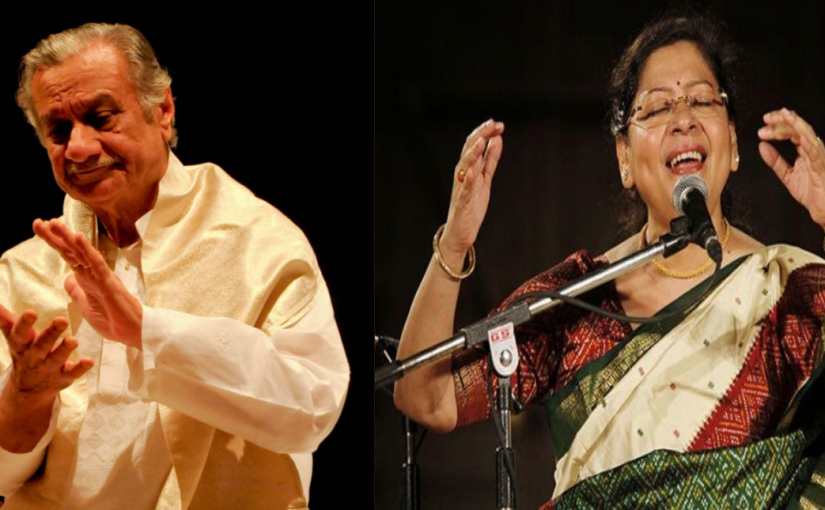
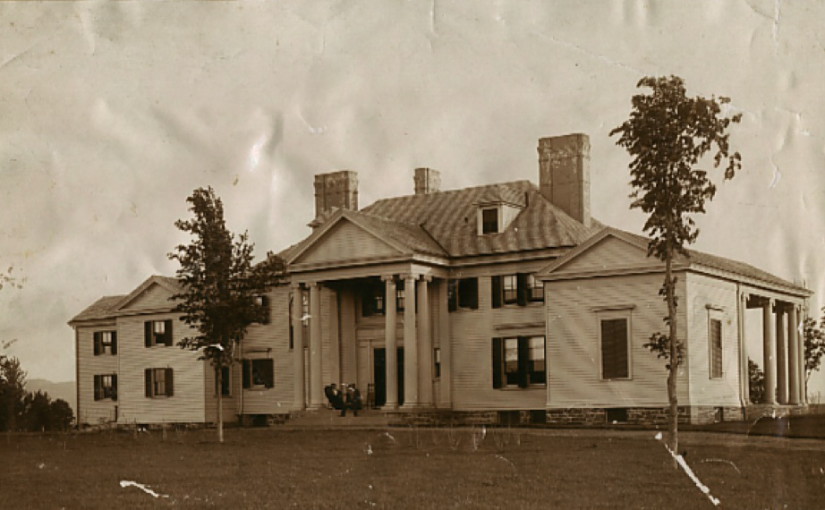
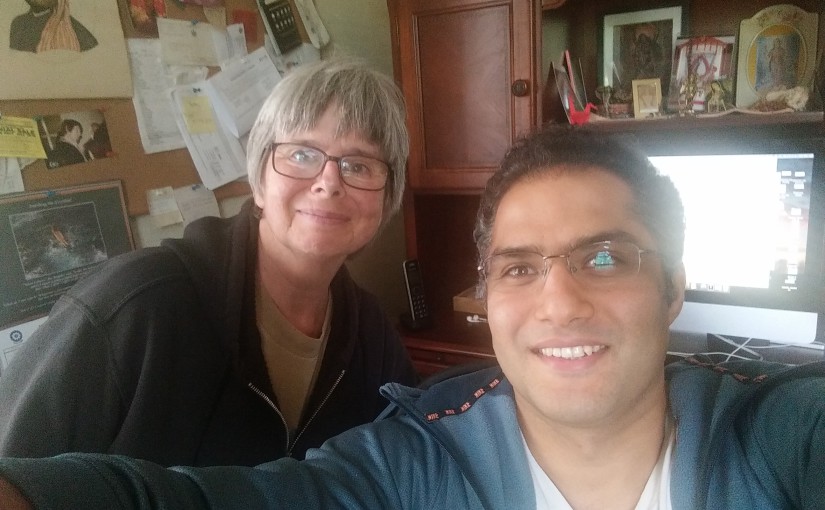
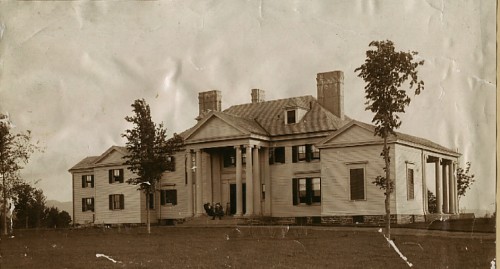

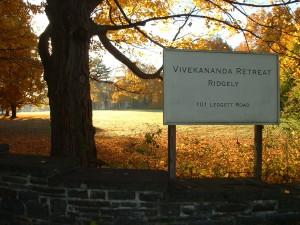
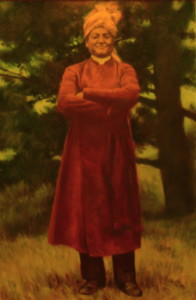
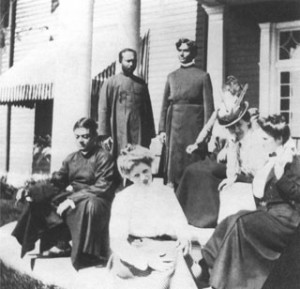
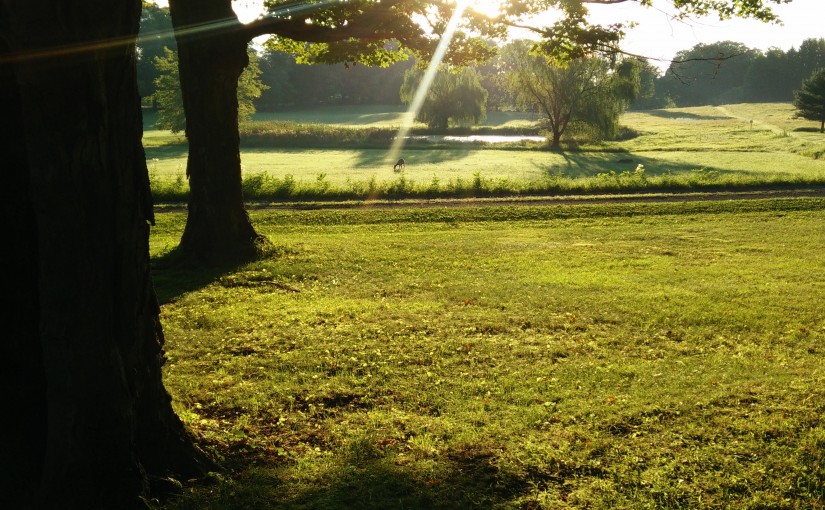
Q. Why is Vivekananda Retreat, Ridgely important?
Swami Vivekananda, the first person to bring the message of Vedanta to the West, stayed at Ridgely on three occasions. He felt he could be himself there, relax and recover from the strain of his intense work. Now, this serene atmosphere – made so by Swami Vivekananda’s extended stays there – is available for spiritual seekers.
Q. Who has been living at Ridgely for the last 100 years?
Until 1997 Ridgely was the home to three generation of the Leggett family. The buildings, particularly the Manor House, remain very much as they were in the days of Swami Vivekananda. Some of the furniture used by Swamiji remains in the houses.
Q. What happens at Vivekananda Retreat, Ridgely?
The resident minister and a small volunteer staff live there and serve the retreatants, pilgrims and local seekers. In addition to classes and other events, spiritual advice and guidance are also available. Two group meditation periods are part of the daily routine along with other scheduled retreat programs. Retreatants may participate in any of Ridgely’s programs or they may wish to design their own private retreat. See our Calendar for more information on Classes and Events.
Q. When and how can I come to visit or stay at Ridgely?
Please call, fax, write or e-mail us to find out availability. For day visits you must call at least a day in advance. The Retreat is open year-round, and is accessible by air, rail, bus or auto. See our visitors page for more information. For overnight stays you must apply a minimum of five days in advance.
Q. How long can I stay at Ridgely?
Arrangements can be made to stay from a few days to a few months. Contact gitaprana@ridgely.org for details.
Q. Where can I get more information about retreats, conferences and seminars, and other activities?
Sign up for our newsletter, friend us on facebook and add us to twitter. You can also see our Calendar for more information on Classes and Events.
Q. How can I help Vivekananda Retreat, Ridgely?